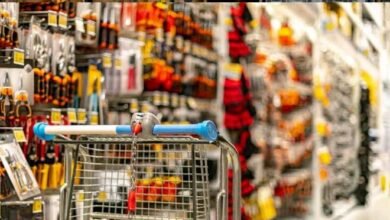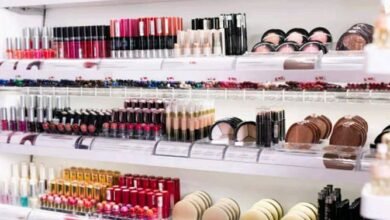Requirements And Cost Of Starting A Wine And Spirits Business In Kenya

Wondering how to start a wine and spirits business in Kenya? Well, you are in the right place. Opening a wine and spirits business can be profitable for anybody with a well-researched plan.
This article covers everything you need to know about starting and running a successful wine and spirits business.
A wine and spirits business involves the production, distribution, and retail of alcoholic beverages, particularly wine and distilled spirits, in various forms. Wine is crafted from fermented grapes, which showcases a wide range of flavors and aromas, appealing to a diverse consumer base. On the other hand, spirits include a vast category of alcoholic beverages derived through distillation, including popular options like whiskey, vodka, rum, gin, and more.
Kenya’s wine and spirits business has witnessed remarkable growth in recent years, driven by factors such as rising disposable incomes, changing lifestyles, and an increasing appreciation for premium alcoholic beverages. This industry encompasses a broad spectrum of businesses, including wineries, distilleries, importers, distributors, wholesalers, retailers, and even specialized wine and spirits bars or lounges.
Embarking on a wine and spirits business requires a deep understanding of the market, legal requirements, sourcing strategies, distribution networks, branding, and customer preferences. And by opening a well-structured liquor store, this business will surely provide rewarding profits for you.
In this article, we have prepared the step-by-step process of starting a wine and spirits business in Kenya, from conducting market research and obtaining necessary licenses to establishing supplier relationships and implementing effective marketing strategies.
What Are The Legal Requirements For Starting A Wine And Spirits Business In Kenya?
Starting a wine and spirits business in Kenya involves complying with several legal requirements. Here are some key requirements to consider:
- Liquor License: Obtain a liquor license from the relevant licensing authority. Different types of licenses are available based on the scale and nature of your business operations.
- Tax Obligations: Register your business with the Kenya Revenue Authority (KRA) for tax purposes. Comply with all tax regulations, including filing tax returns, maintaining proper records, and paying applicable excise duty and value-added tax (VAT).
- Compliance With NACADA Guidelines: Adhere to the guidelines set by the National Authority for the Campaign Against Alcohol and Drug Abuse (NACADA) to promote responsible alcohol consumption. These guidelines include age verification, advertising restrictions, and awareness campaigns.
- Health And Safety Standards: Ensure compliance with health and safety regulations, including proper storage conditions, fire safety measures, and hygiene practices. Conduct regular inspections and maintain proper documentation to demonstrate compliance.
- Age Restrictions: Familiarize yourself with the legal age for alcohol consumption and implement strict age verification processes to prevent selling to underage individuals.
- Intellectual Property Rights: Respect intellectual property rights by avoiding trademark infringement or selling counterfeit products. Conduct proper research and ensure your branding and product names are original and not infringing on existing trademarks.
How Do I Register My Wine And Spirits Business In Kenya?
To register your wine and spirits business, follow these steps:
- Business Name Registration: Choose a unique and appropriate name for your business and register it with the Registrar of Companies. Ensure the name reflects the nature of your business and aligns with your brand identity.
- Business Registration: Register your business entity with the Registrar of Companies. This involves submitting the necessary documents, such as the memorandum and articles of association, the director’s details, and the company’s physical address.
- Tax Registration: Obtain a Personal Identification Number (PIN) from the Kenya Revenue Authority (KRA). This PIN will be used for tax purposes and allows you to file tax returns and comply with tax obligations.
- Licenses And Permits: Apply for the necessary licenses and permits required for operating a wine and spirits business. This includes obtaining a liquor license from the relevant licensing authority and complying with NACADA guidelines.
- Employer Obligations: If you plan to hire employees, register your business with the National Social Security Fund (NSSF) and the National Hospital Insurance Fund (NHIF) to ensure compliance with social security and healthcare contributions.
How Much Does It Cost To Start A Wine And Spirits Business?
The cost of starting a wine and spirits business in Kenya can vary depending on various factors such as location, size of the business, rental fees, licenses, and permits, among others. However, here are some general cost considerations:
1. Business Registration: The cost of registering a business in Kenya varies based on the type of business entity chosen. It typically ranges from KES 10,000 to KES 30,000.
2. Licenses And Permits: You will need to obtain licenses and permits from the relevant authorities, such as the county government and the Kenya Revenue Authority (KRA). The cost of these licenses can vary, but you should budget around KES 50,000 to KES 100,000.
3. Location And Rent: The cost of renting or leasing a commercial space for your wine and spirits business will depend on factors such as size, location, and market demand. Rental costs can range from KES 20,000 to KES 100,000 per month or even higher in prime areas.
4. Inventory: The cost of purchasing initial inventory, including wine, spirits, and other related products, will depend on the scale of your business and the variety of products you plan to offer. This cost can vary significantly, but you should budget a minimum of KES 100,000 to KES 500,000 or more to start with a decent selection.
5. Equipment And Furnishings: This includes shelving, refrigeration units, display cabinets, cash registers, and other necessary equipment. The cost can vary depending on the quality and quantity of equipment required. A rough estimate for these items would be around KES 150,000 to KES 500,000.
6. Marketing And Promotion: You should allocate a budget for marketing and promotion activities to create awareness and attract customers to your business. The cost will depend on your marketing strategies and advertising channels but ranges from KES 50,000 to KES 100,000.
It is essential to note that these figures are rough estimates, and the actual costs can vary significantly depending on several factors. Conducting a thorough market analysis and creating a detailed business plan will help you determine more accurate cost estimates for starting a wine and spirits business in Kenya.
Where Can I Find Suppliers Of Wine And Spirits?
To source reliable suppliers of wine and spirits in Kenya, consider the following avenues:
- Trade Shows And Exhibitions: Attend industry trade shows and exhibitions, such as the Nairobi Wine Festival or the Kenya Food and Drink Expo, to connect with various suppliers and distributors.
- Networking: Engage in networking events and join professional associations related to the wine and spirits industry. This allows you to establish contacts and gain insights from experienced professionals in the field.
- Online Research: Conduct thorough online research to identify reputable suppliers. Visit their websites, review their product offerings, and assess customer reviews and testimonials.
- Distributors And Wholesalers: Reach out to established distributors and wholesalers in the wine and spirits industry. They often have a wide range of products and can provide reliable supply for you.
- Local And International Brands: Contact local and international wine and spirits brands directly to inquire about their distribution channels or recommendations for authorized distributors in Kenya.
- Recommendations And Referrals: Seek recommendations from industry professionals, fellow business owners, or industry-specific forums and communities. They can provide valuable insights and suggestions for reliable suppliers.
What Are The Best Locations To Start A Wine And Spirits Business In Kenya?
Selecting the right location for your wine and spirits business is very important for it to be successful. Consider You had to consider the following factors when choosing a location:
- Demographics And Target Market: Analyze the demographics of the area to ensure there is a sufficient customer base for your products. Look for regions with a higher concentration of your target market, such as urban areas, tourist destinations, or affluent neighborhoods.
- Accessibility And Visibility: Choose a location that is easily accessible to your target customers. Consider a visible storefront that attracts passersby and generates foot traffic.
- Competitor Analysis: Evaluate the presence of existing wine and spirits businesses in the area. While some competition can indicate a viable market, ensure that the competition is not overly saturated, allowing you to carve out a niche for your business.
- Rental Costs: Assess the rental costs and leasing terms for potential locations. Balancing affordability with a desirable location is crucial to optimize your business’s profitability.
- Local Regulations: Consider local regulations and zoning restrictions that may impact your business. Ensure compliance with any specific rules or restrictions related to the sale of alcohol in the chosen location.
What Are The Challenges Facing Wine And Spirits Business In Kenya?
The wine and spirits businesses in Kenya face various challenges, including:
- Regulatory Compliance: Navigating the complex regulatory landscape, obtaining licenses, and ensuring compliance with ever-changing regulations can be a challenge for business owners.
- Counterfeit Products: The presence of counterfeit and illicit alcohol poses a threat to the reputation and profitability of legitimate businesses. Establishing relationships with trusted suppliers and implementing stringent quality control measures is very important.
- Price Sensitivity: Price sensitivity among consumers can affect profit margins. Striking a balance between offering quality products and competitive pricing is essential to remain competitive.
- Distribution And Logistics: Managing logistics and distribution can be challenging, especially when dealing with imported products or serving customers in remote locations. However, ensuring timely delivery and maintaining the integrity of products require efficient supply chain management.
- Changing Consumer Preferences: Understanding and adapting to evolving consumer preferences and trends in the wine and spirits industry is necessary to stay relevant and meet customer demands.
- Competition: The wine and spirits businesses in Kenya are competitive, with numerous players struggling for market share. Differentiating your business through unique product offerings, exceptional customer service, and effective marketing strategies is essential.
What Are Some Common Mistakes To Avoid When Starting A Wine And Spirits Business In Kenya?
Avoiding some common mistakes other wine and spirits business makes can contribute to the success of your own business:
- Lack Of Market Research: Failing to conduct thorough market research can lead to poor product selection, inadequate understanding of the target market, and ineffective marketing strategies.
- Ignoring Legal Requirements: Neglecting to comply with licensing, tax, and regulatory obligations can result in hefty fines, closure of the business, or damage to its reputation.
- Poor Financial Planning: Inaccurate financial projections, underestimating costs, or inadequate capital can lead to financial strain and hinder business growth. Ensure careful financial planning and seek professional advice if needed.
- Neglecting Marketing And Branding: Underestimating the importance of effective marketing and branding can result in low visibility, limited customer reach, and difficulties in building a strong customer base. Invest in marketing strategies that align with your target market and create a compelling brand identity.
- Inadequate Supplier Selection: Relying on unreliable suppliers can lead to issues with product quality and the unavailability of products. You have to research and establish relationships with reputable suppliers who offer consistent quality and competitive pricing.
- Poor Inventory Management: Inefficient inventory management can lead to stockouts, wastage, or spoilage, impacting profitability. Implement an inventory management system that tracks sales, monitors stock levels, and ensures timely replenishment.
- Lack Of Staff Training: Insufficiently trained staff can result in poor customer service, limited product knowledge, and failure to comply with responsible alcohol service guidelines. This should make you invest in comprehensive staff training programs to enhance customer experience and maintain compliance.
- Neglecting Customer Feedback: Ignoring customer feedback and failing to address their needs and preferences can hinder business growth. Regularly seek feedback, implement improvements based on customer suggestions, and foster strong customer relationships.
How Much Does A Liquor Store Make In Kenya?
The average revenue of a liquor store in Kenya ranges from Ksh 500,000 to Ksh 1,500,000 per month. This estimate is for a medium-scale and wholesale wine and spirits business.
What Are The Marketing Strategies For A Wine And Spirits Business In Kenya?
To effectively market your wine and spirits business, you have to consider the following strategies:
1. Build A Strong Brand: Develop a distinctive brand identity that resonates with your target market. Focus on storytelling, unique packaging, and creating a memorable brand experience.
2. Online Presence: Leverage the power of digital marketing by establishing a professional website and utilizing social media platforms to engage with customers, share product information, and promote special offers.
3. Content Marketing: Create compelling and informative content related to wine and spirits, such as blog articles, videos, or podcasts. Position yourself as an expert and build trust with your audience.
4. Social Media Advertising: Utilize targeted social media advertising to reach your specific customer demographics. Run promotions, contests, or collaborations to increase brand awareness and attract new customers.
5. Collaborations And Events: Partner with restaurants, hotels, or event organizers to host tastings, food pairings, or educational events. This allows you to showcase your products and build relationships with potential customers.
6. Local Advertising: Use traditional advertising channels such as print media, radio, or billboards to target local audiences and generate brand recognition within your community.
Summary On How To Start A Wine And Spirits Business In Kenya
Consider the following when starting a wine and spirits business:
1. Market Research: Conduct a thorough market analysis to understand the demand for wine and spirits in different segments and regions of Kenya. Identify your target customers, their preferences, and their purchasing behavior.
2. Business Plan Development: Create a comprehensive business plan outlining your vision, mission, target market, products, pricing strategy, marketing plan, financial projections, and operational details.
3. Business Structure: Decide on the legal structure of your business, such as sole proprietorship, partnership, or limited liability company (LLC). Consider consulting with a legal professional to choose the most suitable structure for your specific needs.
4. Capital: Determine the capital required to start your wine and spirits business. Explore various funding options, such as personal savings, loans, partnerships, or seeking investors.
5. Select A Good Location: Identify potential locations for your business based on factors like foot traffic, proximity to your target market, accessibility, and rental costs. Consider leasing or buying a property that meets your requirements.
6. Get Licenses And Permits: Get to know the legal requirements for obtaining licenses and permits from regulatory authorities, such as the Kenya Revenue Authority (KRA), National Authority for the Campaign Against Alcohol and Drug Abuse (NACADA), and the county government.
You have to ensure compliance with all regulations related to liquor licensing, tax obligations, health and safety standards, and age restrictions.
7. Find A Supplier: Establish relationships with reputable wine and spirits suppliers. Consider attending trade shows, networking with industry professionals, and conducting online research to find reliable suppliers who offer quality products at competitive prices.
8. Inventory Management: Develop an efficient system for managing your inventory, ensuring proper storage conditions, tracking sales, and minimizing losses due to spoilage or theft.
9. Recruit Staff: Hire competent staff members who are knowledgeable about wines and spirits. Also provide adequate training to enhance their product knowledge, customer service skills, and responsible alcohol service.
10. You Need A Good Marketing Strategy: Develop a comprehensive marketing plan to create brand awareness, attract customers, and build customer loyalty. You can use both traditional and digital marketing channels, including social media, local advertising, events, and collaborations with restaurants and hotels.









